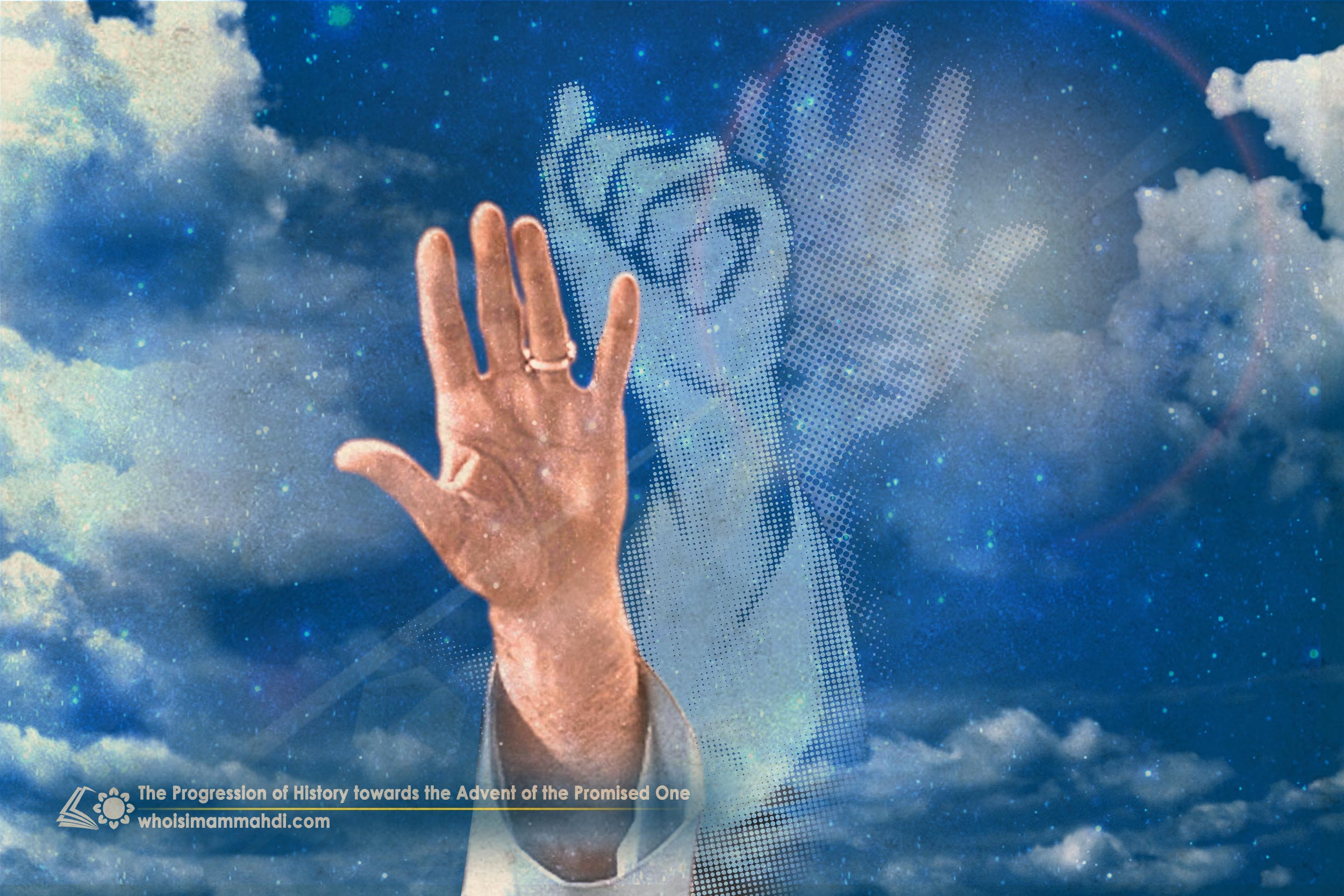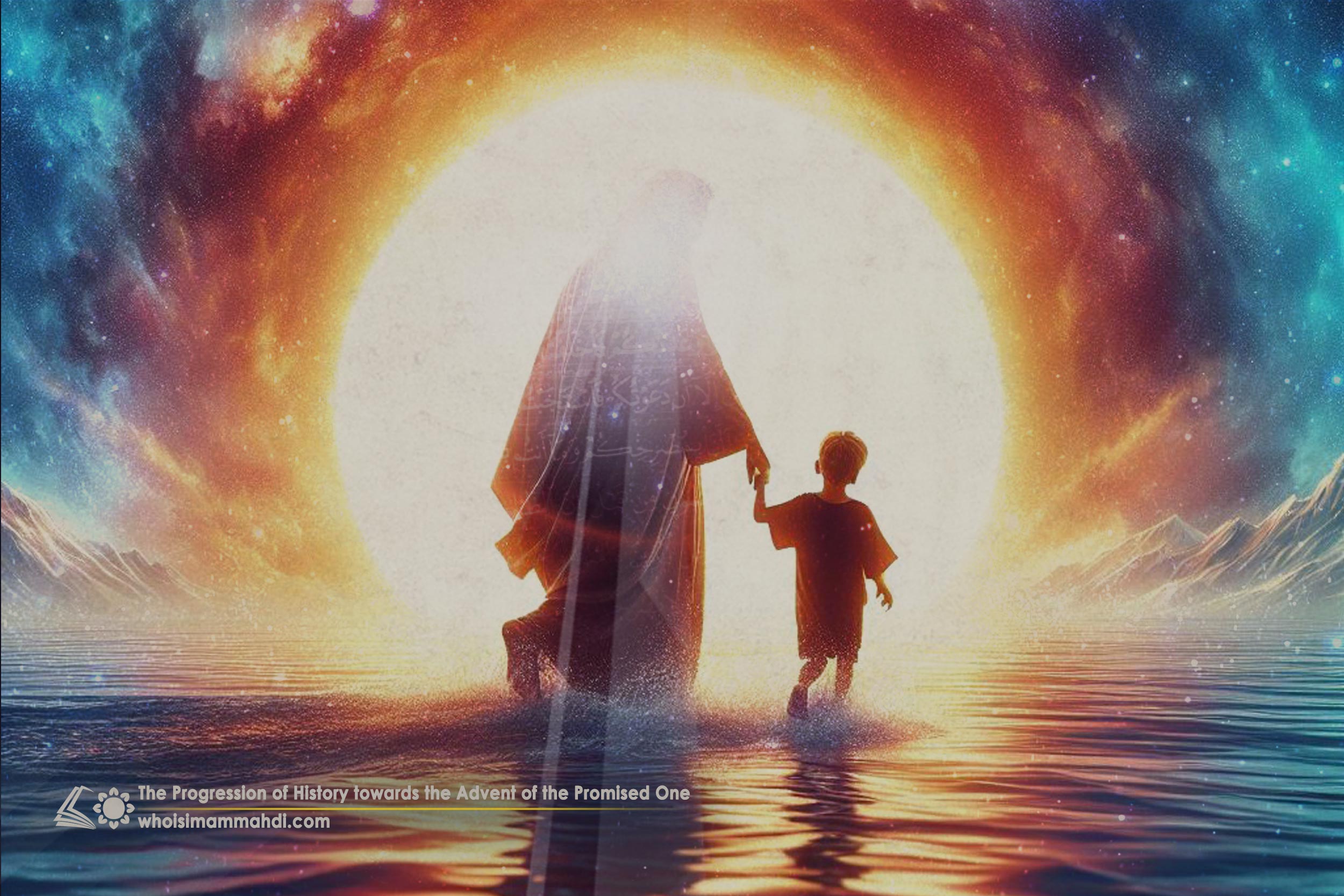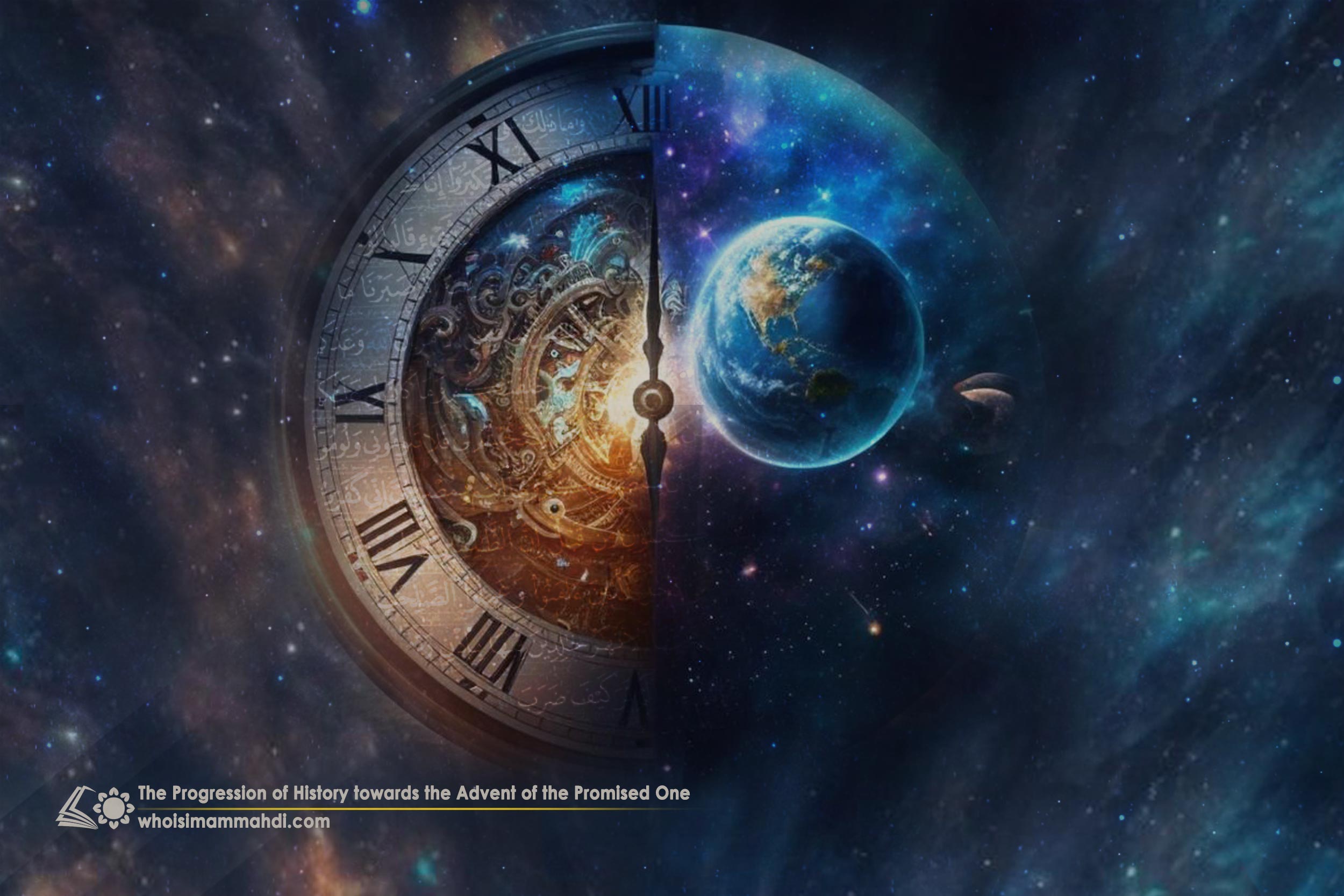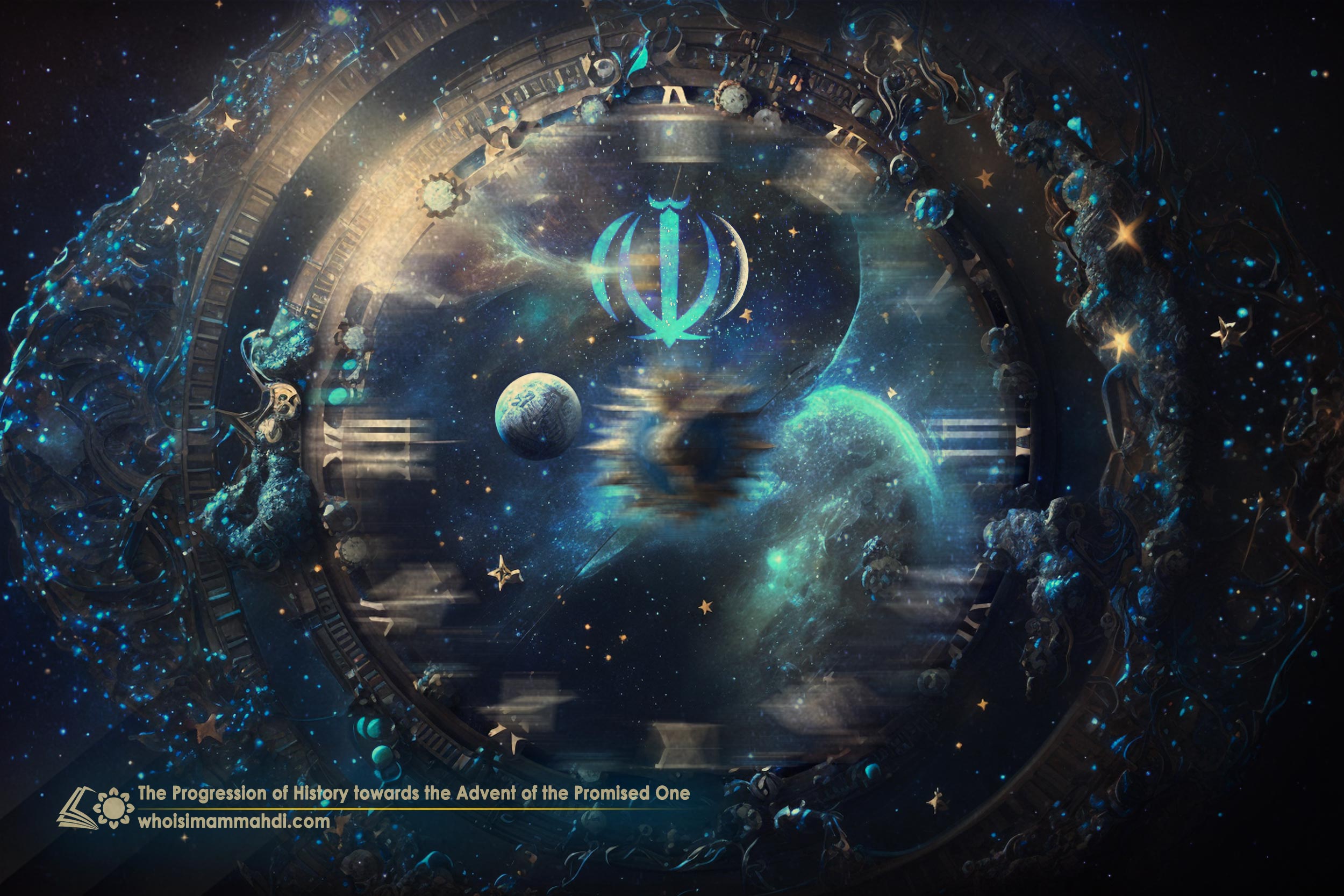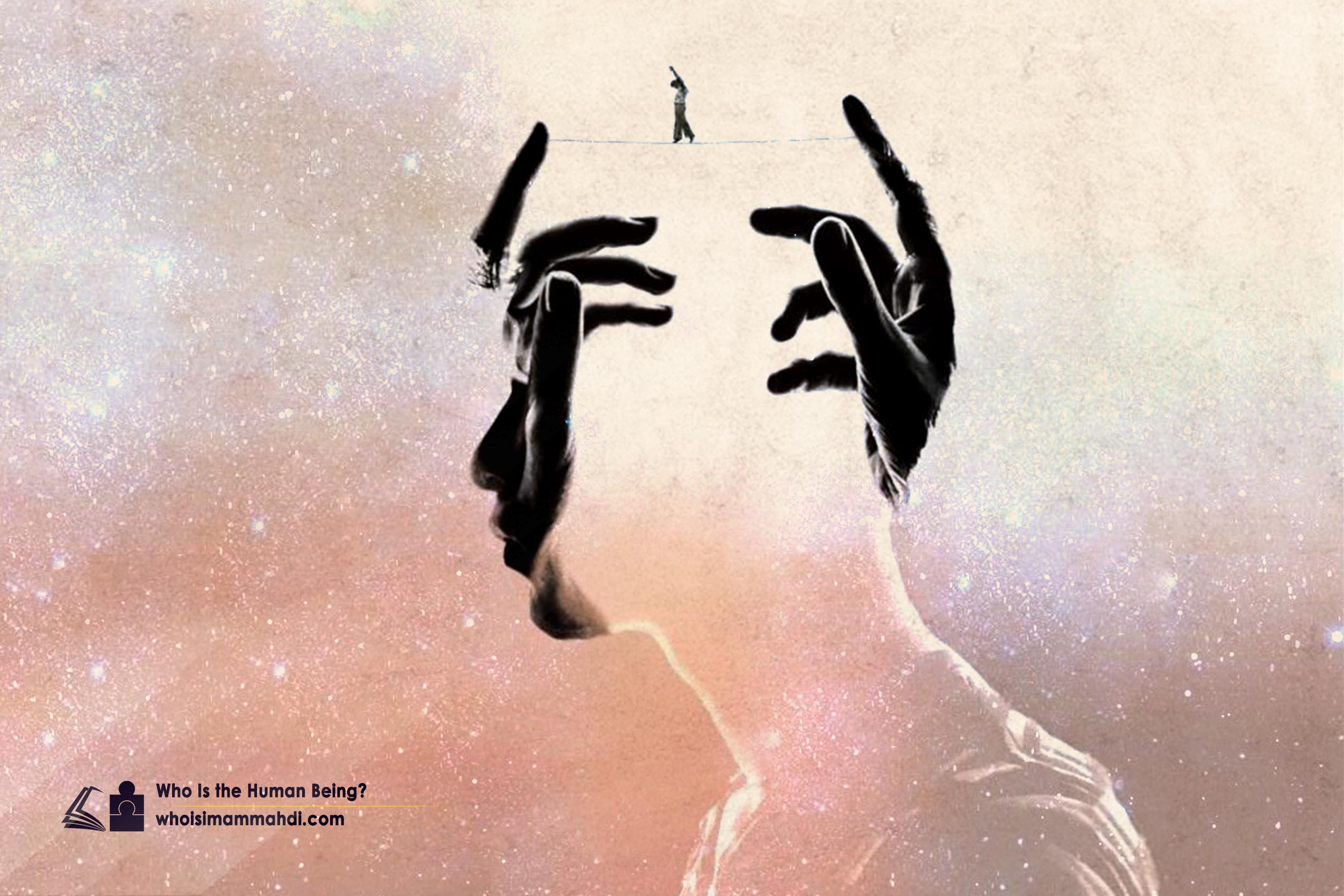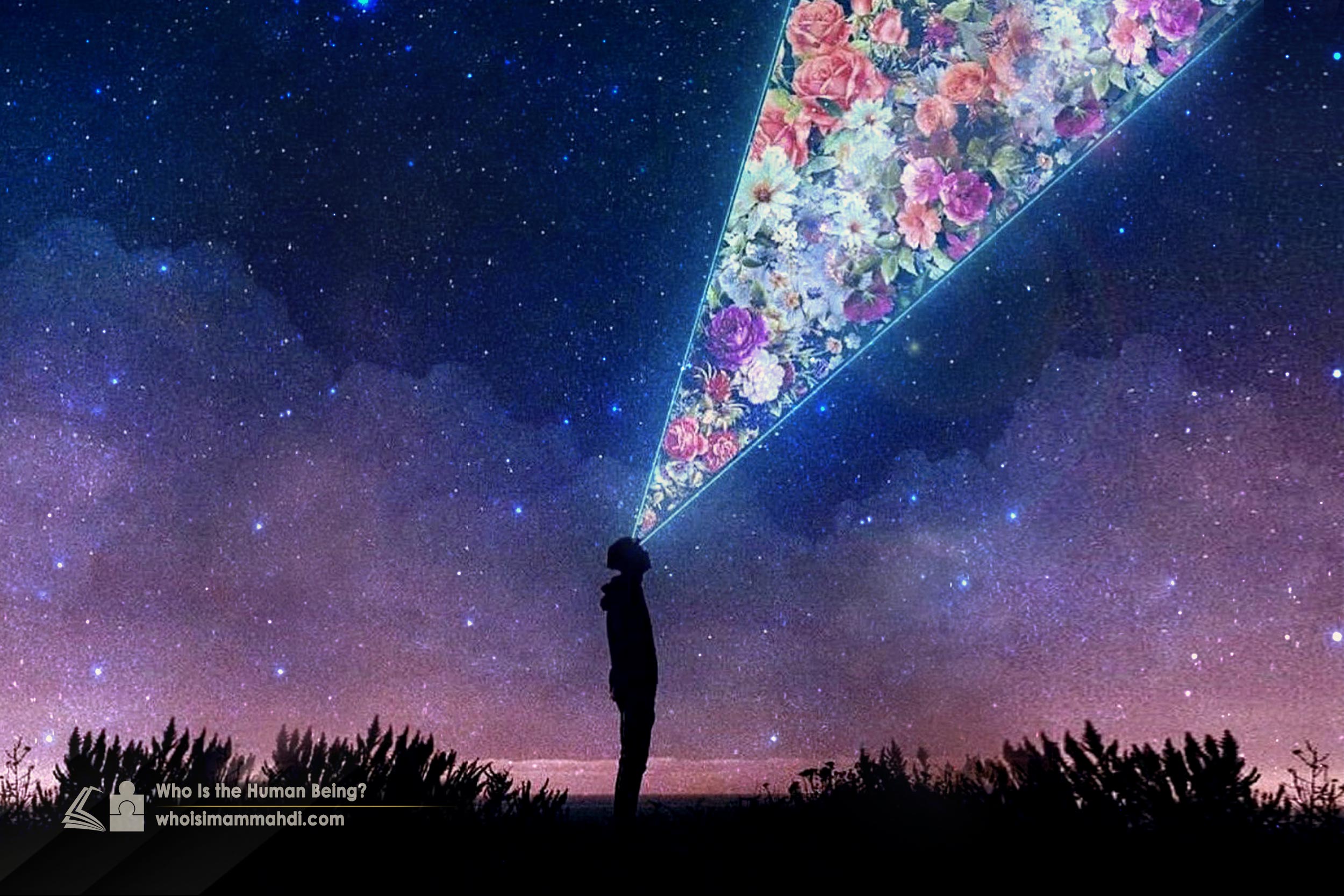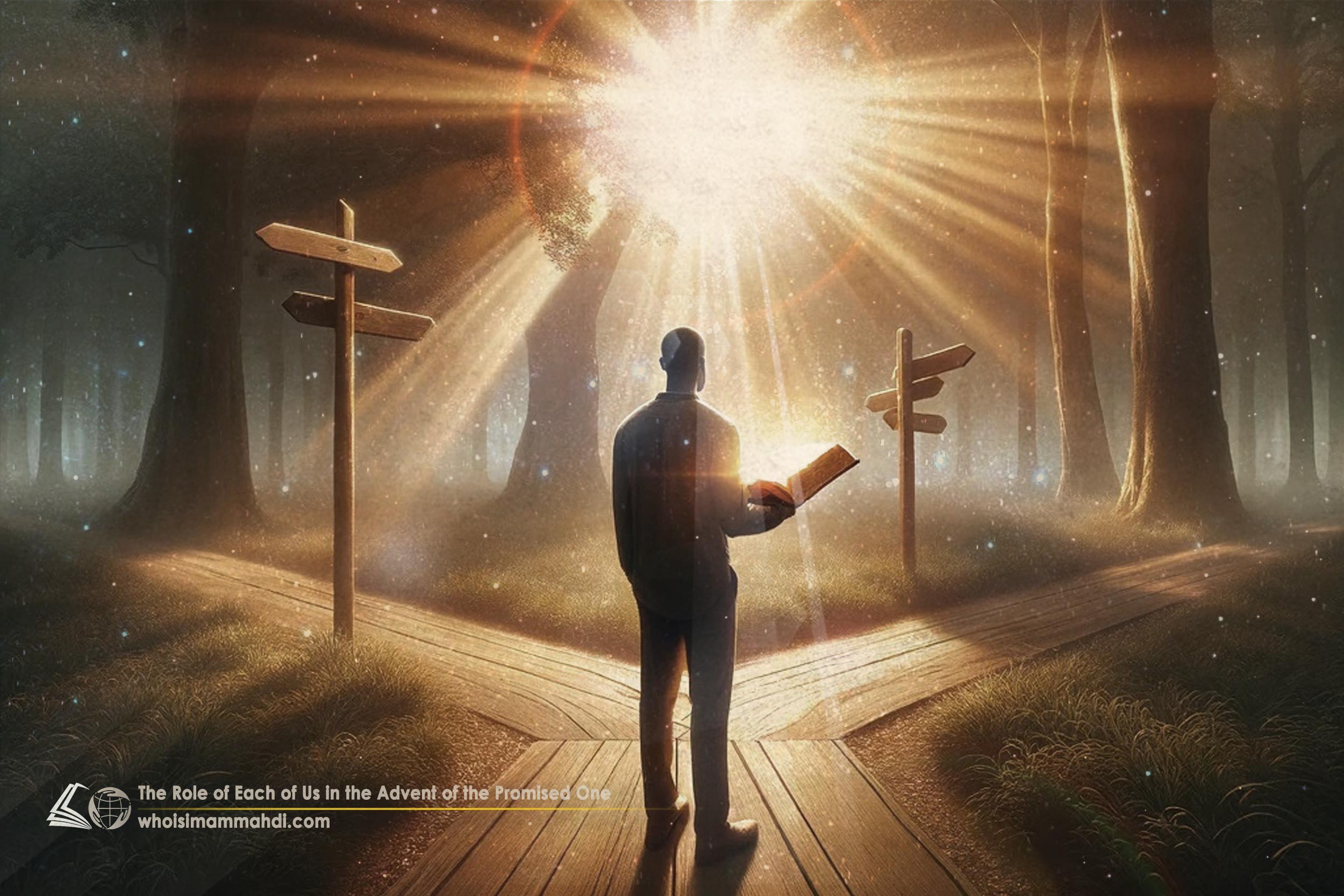What Is God’s Design and Plan for Establishing the Rule of the Righteous on Earth?
What will the future of the world be like? What is God’s and the Ahl al-Bayt’s (PBUT) plan in realizing the future of the world and establishing the rule of the righteous on Earth? Is the process of power transition from oppressive governments to the rule of the righteous sudden or gradual? Who are the most important figures in shaping the future of the world and establishing the rule of the righteous, and what characteristics do these individuals possess?
In the previous articles, we discussed the mission of prophets in educating people for the future of the world and preparing the ground for the rule of the righteous. We also mentioned verses from the Quran that explicitly raise the issue of the inheritance of the Earth by the righteous and the oppressed, and a future is described in which oppressive governments will be completely destroyed, and the long-standing dream of humanity for the rule of God’s religion, which is the rule of the righteous on Earth, will be realized. With this knowledge, the first question that arises is, what is God’s plan for realizing this future, and how does this process unfold?
Based on the collection of verses and narrations related to the End Times, the rule of the oppressed over the Earth occurs in the most bitter and oppressive era of history when the majority of people worldwide are suffering under the tyranny of oppressive powers and have lost hope for reforming the world. In such a period of time, the advent of the Promised Savior as the last link in the chain of struggles between truth and falsehood throughout history leads to the fulfillment of the promise regarding the future of the world, as envisioned by all divine prophets. Naturally, the process of the triumph of truth over falsehood is gradual, and the Quran also emphasizes that truth does not prevail over falsehood suddenly and without prior groundwork.
For the victory of truth, this front must gradually gain power to penetrate the realm of falsehood and overthrow it. Therefore, expecting God to miraculously bring about such a process is unrealistic because God has created humans as rational beings and does not compel them to accept the truth through miracles or force. People must attain intellectual maturity, seek the truth themselves; in order for this to happen, a model of the rule of the righteous must first be established in a region on Earth. This model society serves as a nurturing environment where people can learn and grow in a righteous way. These pioneers of righteousness will pave the way for the education of more individuals and ultimately the advent of the Promised Savior. But who are these righteous people, and what characteristics do they have? We will discuss this later.
Iranians, the Greatest Pioneers of the Advent of the Savior
In the Quran, God mentions seven important characteristics for the people who will determine the future of the world. He states: “O believers! Whoever among you abandons their faith, Allah will replace them with a people who love Him and are loved by Him. They will be humble with believers but firm towards disbelievers, struggling in the Way of Allah; fearing no blame from anyone. This is the favor of Allah. He grants it to whoever He wills. And Allah is All-Bountiful, All-Knowing.”[1]
The verse warns of the danger of some believers losing their faith during the time of Prophet Muhammad (PBUH), but it also offers hope by highlighting the steadfastness and truthfulness of other believers in the distant future, easing the concerns of the Islamic community. According to this verse, the believers shaping the future of the world and inheriting the rule of the righteous possess seven key characteristics:
- God loves them.
- They love God.
- They are humble towards other believers.
- They are steadfast and unwavering in their opposition to disbelievers.
- They are driven by a spirit of jihad, and they are constantly struggling for the cause of Allah.
- They are not afraid of being criticized by those who disapprove of their actions.
- They are worthy of special divine grace.
The content and meaning of this verse made people during the time of Prophet Muhammad (PBUH) wonder about the group of people who would emerge in the distant future to compensate for the disbelief of other believers. They asked the Prophet about the manifestation of this verse, to which he replied while placing his hand on Salman al-Farsi’s shoulder, “This man and his compatriots.” He then added, “If faith were hung from the Pleiades, then the people of Persia would obtain it.”[2] Therefore, based on the Prophet’s statement, the people who will come and shape the future of the world are a group of Iranians. It is important to note that, during the time of Prophet Muhammad, Iran differed geographically from what we recognize as the borders of the Islamic Republic of Iran. At that time, the Persian Empire encompassed a much larger area than modern-day Iran.
Iranians had a long history of monotheism, culture, and piety even before Islam. No other country values and respects believers as much as Iran does. Iranians embrace believers from all over the world among themselves and support them in various ways. Iranian people are resilient and resistant against infidels, unafraid of war and jihad in this regard, and do not fear any reproach from those who criticize them. Unlike the first two characteristics, which have been present in the Iranian people for centuries, resistance to hegemonic powers and infidels is a relatively recent development that emerged in people after the Islamic Revolution. We will now proceed to mention some other verses and narrations that directly and indirectly point to the characteristics of Iranians as the greatest pioneers of the advent of the Promised Savior at the End Times.
Faith and Future-Building in the Hands of Iranians
Another verse that has been revealed regarding the Iranian nation and almost follows the same context as the previous verse states: “And if you turn away, He will replace you with some other people and they will not be like you [in terms of frailty of faith and stinginess].”[3] The companions asked the Prophet about the manifestation of this verse. In response, he placed his hand on Salman Al-Farsi’s shoulder and said, “This man and his people. If faith were hung from the Pleiades, then the people of Persia would obtain it.” This emphasizes the power of faith among the people of Iran.
At the time of the revelation of this verse, the Prophet mentioned, “This verse is dearer to me than the whole world.”[4] This indicates a future vision the Prophet had, bringing joy to him, which is the inheritance of the Earth by the righteous and the establishment of the rule of the righteous. For this reason, he considered it more delightful than anything else in the world. The rule of the righteous is the last piece of the puzzle that God has laid down since the time of the first human, and all prophets and saints have been sent with the aim of establishing such a government. The rule of the righteous is important as it enables human movement and growth towards fulfilling the purpose of creation, which is similarity to God with the help of an infallible expert.
The Prophet (PBUH) also emphasized the significant role that Iranians play in Islam, stating, “The people who have the greatest share in Islam are the people of Persia (Iran).”[5] Morteza Motahhari elaborates on this important issue in his two-volume book titled The Mutual Services of Islam and Iran, highlighting the decisive role Iranians have played in the preservation and victory of Islam globally. The statements made by the Prophet about Iranians show their pivotal role in shaping the future of the world. Alongside the narrations discussing the significance of the revelation of this verse, Imam Sadiq (PBUH) clarifies that this verse refers to Iranians who would come in the future.[6]
Furthermore, in another place, when speaking about Iranians, the Prophet mentioned, “By God, my trust in them exceeds my trust in you.”[7] Additionally, in another interpretation of this verse, Imam Sadiq stated, “And if you turn away from the guardianship of the Commander of the Faithful (Imam Ali), He will replace you with another people who will not be like you in their enmity, opposition, and oppression towards the Household of the Messenger of Allah.”[8] During the Arab invasion of Iran, Imam Ali stated, “You are striking them (with the swords) upon its (Quran’s) Revelation, and the world will not come to an end until they strike you (back) upon its interpretation.”[9]
The Virtue of Iranians and Their Infinite Love for God
The third group of verses that refer to the outstanding characteristics of Iranians is found in verses 198 and 199 of Surah Ash-Shu’ara (The Poets), which state: “If We had revealed it to a non-Arab, and he had recited it to them, they would not have believed.” Regarding this verse, Imam Sadiq (PBUH) said: “If the Quran had been revealed to non-Arabs, Arabs would never have believed in it, yet it was revealed to Arabs, and Iranians believed in it. This is also a virtue of Iranians.”[10]
This statement highlights the certainty of Iranians; it points out that Iranians have such strong faith that they believe in a Quran that was not revealed to them, while if the opposite were to happen, the Arabs would never believe in it. Therefore, they consider this as evidence for the virtue of Iranians due to their love for God.
The Connection and Attachment of Iranians to the Companions of the Prophet (PBUH)
The fourth group of verses concerning Iranians is found in verses 2 and 3 of Surah Al-Jumu’ah (Friday), which state: “He is the One Who raised for the illiterate [people] a messenger from among themselves—reciting to them His revelations, purifying them, and teaching them the Book and wisdom, for indeed they had previously been clearly astray—and (He has also) sent him to those others who have not yet joined them. And He is the All-Mighty, the All-Wise.” During the revelation of this verse, a man asked the Prophet (PBUH), “Who are those who have not yet joined us?” This question was asked twice, but the Prophet did not respond until the third time when he placed his blessed hand on Salman Al-Farsi’s shoulder and said: “By the One in whose hand my life lies, if faith were to be suspended from the Pleiades, men from Persia would attain it.”[11] According to the Prophet’s statement, those who had not yet joined believers and would join them later were Iranians.
Iranians Taking the Lead in Religiousness
The fifth verse that has been revealed regarding the virtue of Iranians is verse 133 of Surah An-Nisa (Women). In this verse, God says: “O people! If God wills, He will destroy you and replace you with another group. And God is always able to do so.” In his commentary on this verse, the late Allameh Tabataba’i mentions: “When this noble verse was revealed to the Messenger of God, he placed his blessed hand on Salman’s back and said, ‘Those who come and excel you Arabs in accepting Islam and answering the call of God, the Most High, are the people of this man.’”[12]
God Gives the Last Warning to the People of the Prophet’s Era
In another verse, Allah, the Most High, addresses the Prophet (PBUH), saying: “But if these disbelieve in this [the Book, command, and prophethood], then We have already entrusted it to a people who will never disbelieve in it.”[13] The word “wakkalnaa” signifies power, and the word “bihaa” refers to religion. Regarding the revelation of this verse, the late Allamah Majlesi states that this verse was revealed about Iranians.[14]
The Chosen People
“If you do not march forth [mobilize for jihad], He will afflict you with a painful torment and replace you with other people. You are not harming Him in the least. And Allah is Most Capable of everything.”[15] This verse also alludes to the future of the world. In commentaries, it has been mentioned that the chosen people referred to in this verse are Iranians.
From the collection of verses and narrations that refer to Iranians, we conclude that the people of Iran hold a special place with God and the Ahl al-Bayt (PBUT). Furthermore, we find that God has entrusted a great mission to this nation. It is the most important and sacred mission that a nation can undertake. The divine mission of the Iranian nation is to prepare the world for a change in the course of human history from the rule of tyrants and global arrogance towards the rule of the righteous and the governance of God’s religion and the Promised Savior of the world, i.e., Imam Mahdi (May Allah hasten his noble reappearance).[16] Therefore, the Prophet and the other Ahl al-Bayt (PBUT) paid special attention to Iranians and always tried to strengthen and educate this front through various means as a righteous front that determines the future of the world and establishes God’s religion on Earth. In the next article, we will extensively talk about the historical journey of strengthening and educating Iranians and preparing them for their role in shaping the future of the world towards the rule of the righteous.
[1]. Quran, 5:54
[2]. Muhammad Baqir Majlisi. Bihar al-Anwar, vol. 22, p. 40.
[3]. Quran, 47:38
[4]. Qummī, Muḥammad ibn Muḥammad Riḍā. Tafsīr Kanz al-daqā’iq wa-baḥr al-gharā’ib, vol. 12, p. 264.
[5]. Kanz al-Ummāl, 34126
[6]. Bihar al-Anwar, vol. 64, p. 171.
[7]. Kanz al-Ummal, hadith 34128
[8]. Al-Burhan, vol. 5, p. 73
[9]. Bihar al-Anwar, vol. 64, p. 172.
[10]. Bihar al-Anwar, vol. 64, p. 171.
[11]. Al-Wāfī, vol. 3, p. 674. Ṣaḥiḥ Muslim, hadith 2546. Musnad Ahmad ibn Hanbal, hadith 2, p. 417. Sahih al-Bukhari, hadith 4897.
[12]. Tafsir al-Mizan, vol. 5, p. 168.
[13]. “fa iny yakfur bihaa haaa’ulaaa’i faqad wakkalnaa bihaa qawmal laisoo bihaa bikaafireen” (Quran, 6:89)
[14]. Safinah al-Nejat, vol. 16, p. 167.
[15]. Quran 9:39
[16]. Muhammad Shojaee. The Islamic Revolution and the Future of the World, p. 107

